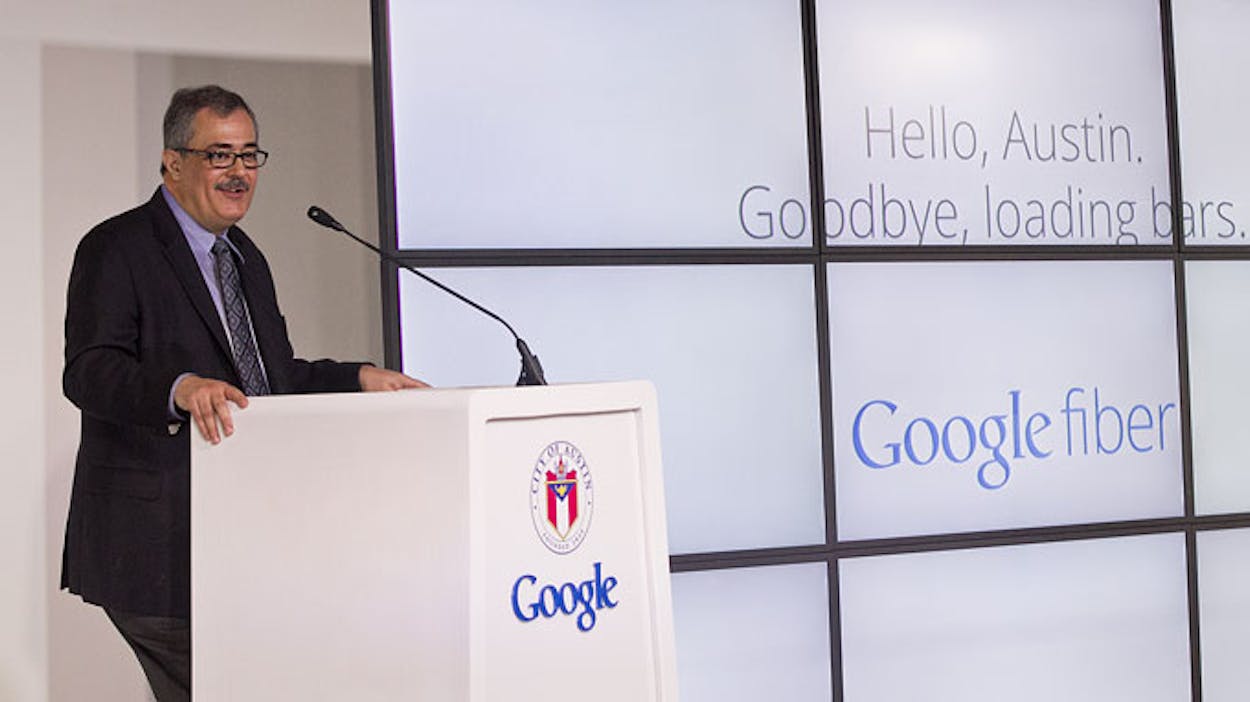Twitter was a-twitter this morning with the official announcement that Austin will be the third city in the country (after Kansas City, Missouri and Kansas City, Kansas) to see a buildout of Google Fiber. As CNNMoney explains, Fiber is a super-fast internet service that offers 1-gigabit network speeds, and includes an optional super-fast television service for an extra monthly fee, although the local pricing for these services hasn’t been set yet.
How fast is Fiber? Well, according to Google, it’s 100 times faster than the slowpoke internet Austin has stoically endured in recent years. In layman’s terms, that’s so fast you wouldn’t even have to read this story. It would be beamed directly into your brain before the link finished instantaneously loading. If the user also has Google Glass he would be able to record the process and transmit the video to gadget enthusiasts around the world in mere seconds. Take that, North Korea!
It’s not hard to guess why Google was drawn to Austin, and vice versa. The company’s growing presence here reinforces the city’s reputation as a tech mecca, and could further the state’s image as the same. “With the installment of Google Fiber, the case can be made that Texas is one step closer to becoming the nation’s next technological hub,” said Governor Rick Perry at the announcement this morning, “inviting some of the boldest and most creative visionaries to call Austin their home.”
An interesting political note is that Google isn’t just a high-profile company; it’s a highly vocal one. Its influence was apparent in 2011-2012, when the company led the opposition to SOPA and PIPA– the Stop Online Piracy Act and the Protect IP Act, two anti-piracy bills that fizzled in Congress after a concerted critique by the internet lobby, which argued that they represented an imminent threat to the future and vitality of the open web. The former, you may recall, was authored by Texas’s own Lamar Smith, a longtime Republican congressional representative whose district sprawls from San Antonio to Austin. To put it another way, his district runs from Clear Channel territory to the turf where Google is about to stake a bigger claim, which could, potentially, be awkward for him.
As for the state? Well, Perry struck an unusually modest note in his statement above—since when are we in the business of carefully building a case, governor? Let’s put it this way: the Google Fiber announcement means that Texas is one step closer to becoming the nation’s technological hub—and it will have a growing voice in some of the tech policy debates, too.
- More About:
- Politics & Policy







